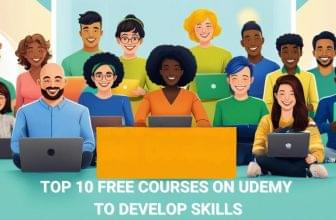Improving math skills requires a systematic and focused approach. First and foremost, it’s essential to build a strong foundation by mastering basic concepts like arithmetic and algebra.
Regular, consistent practice is crucial, emphasizing understanding rather than mere memorization. Breaking down complex problems into smaller, more manageable tasks facilitates a gradual and comprehensive learning process.
Utilizing diverse learning resources, including textbooks, online platforms, and interactive applications, provides a well-rounded understanding of mathematical principles. Real-world applications of math amplify comprehension by demonstrating the practical relevance of theoretical concepts.
Key 🗝️ Contents 📃
Are There Specific Math Topics I Should Prioritize For Improvement?
When embarking on the journey to improve math skills, it’s beneficial to strategically prioritize certain topics. Foundational concepts like arithmetic, algebra, and geometry lay the groundwork for a solid mathematical understanding.
However, personal or academic goals may warrant a focus on specific areas. For instance, if trigonometry is a key requirement, prioritizing topics related to the circle unit chart becomes pivotal. The circle unit chart, integral in trigonometry and geometry, visually represents angles and proportions within a circle.
By concentrating on this, individuals can enhance their grasp of angular measurements, radians, and trigonometric functions. This targeted approach ensures a balanced blend of core knowledge and specialized skills, tailoring the improvement process to align with specific applications or educational pursuits.
How Can I Make My Math Study Routine More Productive And Consistent?
To enhance the productivity and consistency of your math study routine, establish a regular schedule that aligns with your peak focus times. Break down complex topics into smaller, manageable tasks, allowing for steady progress.
Utilize diverse learning resources, such as textbooks, online platforms, and interactive apps, to gain a well-rounded understanding. Incorporate regular review sessions to reinforce concepts and address any lingering uncertainties. Additionally, set realistic goals and track your progress, adjusting your approach as needed. Creating a dedicated and organized study environment, free from distractions, can further optimize your focus and retention during math sessions.
By combining these strategies, you can build a more effective and consistent math study routine tailored to your learning preferences and goals.
What Are Some Recommended Online Platforms For Practising Math?
Several highly recommended online platforms cater to effective math practice. Khan Academy stands out for its comprehensive video lessons and interactive exercises covering various math topics.
Brilliant offers engaging problem-solving opportunities and interactive learning experiences, fostering a deeper understanding of mathematical concepts. Wolfram Alpha, known for its computational power, enables users to input math queries and receive step-by-step solutions.
These platforms not only provide practice problems but also offer detailed explanations, making them valuable resources for learners at different levels. Whether you are looking for tutorials, practice exercises, or challenging problem-solving opportunities, these online platforms can significantly contribute to enhancing your math skills in an interactive and accessible manner.
Is It Beneficial To Apply Math To Real-Life Situations For Better Understanding?
Applying math to real-life situations is immensely beneficial for enhancing understanding. Real-world applications provide context and relevance, showing how mathematical concepts are integral to solving practical problems.
Whether it’s calculating expenses, measuring quantities, or analyzing data, connecting math to everyday scenarios makes the learning experience more meaningful. This approach not only deepens comprehension but also highlights the importance of math in various aspects of life.
It bridges the gap between theoretical knowledge and practical utility, making mathematical concepts more tangible and applicable. By embracing real-life applications, learners gain a holistic understanding of math, fostering a skill set that is not only academically sound but also readily transferable to diverse situations.
Can You Suggest Any Engaging Math Games Or Activities For Learning?
Applying math to real-life situations is immensely beneficial for enhancing understanding. Real-world applications provide context and relevance, showing how mathematical concepts are integral to solving practical problems.
Whether it’s calculating expenses, measuring quantities, or analyzing data, connecting math to everyday scenarios makes the learning experience more meaningful. This approach not only deepens comprehension but also highlights the importance of math in various aspects of life.
It bridges the gap between theoretical knowledge and practical utility, making mathematical concepts more tangible and applicable. By embracing real-life applications, learners gain a holistic understanding of math, fostering a skill set that is not only academically sound but also readily transferable to diverse situations.
How Can I Overcome Math Anxiety And Gain Confidence In Problem-Solving?
Overcoming math anxiety and building confidence in problem-solving involves a gradual and positive approach. Start by tackling simpler problems to build a foundation and gradually progress to more challenging ones.
Break down complex problems into smaller, manageable steps, focusing on understanding the underlying concepts. Regular practice is key; the more exposure to problem-solving, the more confidence will grow. Celebrate small victories and progress, reinforcing a positive mindset.
Seeking support from peers, teachers, or tutors can provide additional guidance and assurance. Visualization techniques and real-life applications of math can also make abstract concepts more tangible, reducing anxiety.
By adopting a patient and persistent mindset, combined with strategic learning techniques, one can effectively overcome math anxiety and gain the confidence needed for successful problem-solving.





